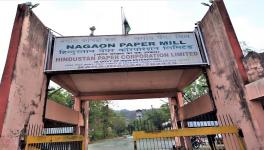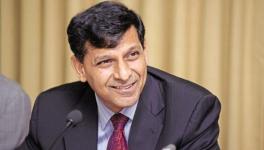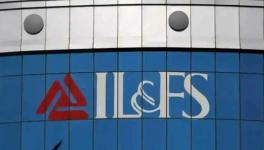Auditors Demand Sufficient Audit Evidence, Use Disclaimer of Opinion
Kolkata, July 2: Discredited because of connivance in corporate misdemeanours, auditors are now increasingly insisting on what they put it as “sufficient audit evidence” regarding advances to group companies. They are not shying away from appending ‘Disclaimer of Opinion’ with respect to clients’ financial statements about whose veracity they have.
“We cannot deny some adjustments between companies and their auditors have been part of the game in which we have been participating despite the risk it entails for us. But, the space for that has shrunk considerably and we have already begun to protect ourselves,” said two senior chartered accountants while speaking to NewsClick.
The situation for them, they admit, has been turning adverse ever since the IL&FS debt repayment default surfaced around September 2018 and the Union Ministry of Corporate Affairs (MCA) took a stern view of the IL&FS lapses, going as far as to recommend to National Company Law Tribunal (NCLT) a five-year ban on the involved auditors – Deloitte Haskins Sells and KPMG network firm BSR & Associates. They also cite the instance of RBI banning S R Batliboi & Co for lapses in statutory audit some time back.
MCA, it may be mentioned, has since then been emphasising the urgency of “sanitising” the list of corporates and professionals (chartered accountants, cost accountants and company secretaries) by subjecting them to the KYC exercise. The exercise for chartered accountants continues.
That the audit firms are becoming cautious is also borne out by the recent resignation as independent auditor by Price Waterhouse & Co Chartered Accountants LLP of (Late) B M Khaitan Group company’s Eveready Industries. The resignation came after describing certain transactions involving loans to group firms as ‘irregular’. The second instance of recent resignation is from the Anil Ambani Group firm Reliance Home Finance, whose auditor was PwC.
Another example from the B M Khaitan Group, which is worth citing, is the tea firm McLeod Russel, whose independent auditor’s – Deloitte – caustic remarks read to the effect that McLeod’s continuance as a “going concern” hinges on lenders agreeing to recasting of its short-term borrowings and promoters managing to sell more assets. It may be mentioned that in recent months, because of extremely adverse financial conditions, McLeod has sold a good number of tea gardens.
In a bid to recognise the need to be assertive in a situation marked by regulatory and compliance pressures, auditors are laying more stress on detecting cases of diversion of funds, giving advances to group companies, prospects of them discharging interest obligations and advances given for acquiring leasehold rights for property or properties on the basis of MoUs. They are keeping an eye on where deeds remain to be executed despite the lapse of the stipulated time, and whether the company has duly claimed refund of the advance.
While scrutinising such transactions, auditors are insisting on the company providing “sufficient audit evidence”, starting with provision in the memorandum/articles of association, limits, if any, for advances and circumstances as also purposes under or for which the company can extend advances to a group outfit.
When not satisfied with the financial statements furnished by the company and about the financial controls in place there, the auditor these days are not hesitating to append ‘Disclaimer of Opinion’, which simply means that the auditor is offering no opinion.
The auditor can take recourse to the ‘Disclaimer of Opinion’ even when it is unable to form an opinion for want of time. In fact, the auditors this correspondent talked to lamented that they were given just about a month to complete their assignment at a time. They were under tremendous pressure because of increasing regulatory and compliance issues. The usual refrain of companies is that the date for annual general meeting had been fixed up by the board and, therefore, they must expedite their job. The auditors do not conceal that one of their concerns certainly has been whether they will be retained.
Meanwhile, there is a silver lining. Because of GST and increasing regulatory scrutiny, upping of governance standards and frequent changes in the Companies Act, the demand for chartered accountants from corporate and business outfits is seeing a definite spurt. A total of 3,815 job offers were made to 6,646 qualified chartered accountants who opted to take part in the placement cycle of the Institute of Chartered Accountants of India in February-March 2019. The job offers stood at 1,471 for the same two months in 2018. There is increasing participation from corporate or business houses in the placement sessions of ICAI.
The writer is a senior journalist based in Kolkata, who used to work earlier with The Hindu Business Line and Economic Times.
Also watch: Frauds and Friends: How Auditors Are Enabling Crony Capitalism
Get the latest reports & analysis with people's perspective on Protests, movements & deep analytical videos, discussions of the current affairs in your Telegram app. Subscribe to NewsClick's Telegram channel & get Real-Time updates on stories, as they get published on our website.
























